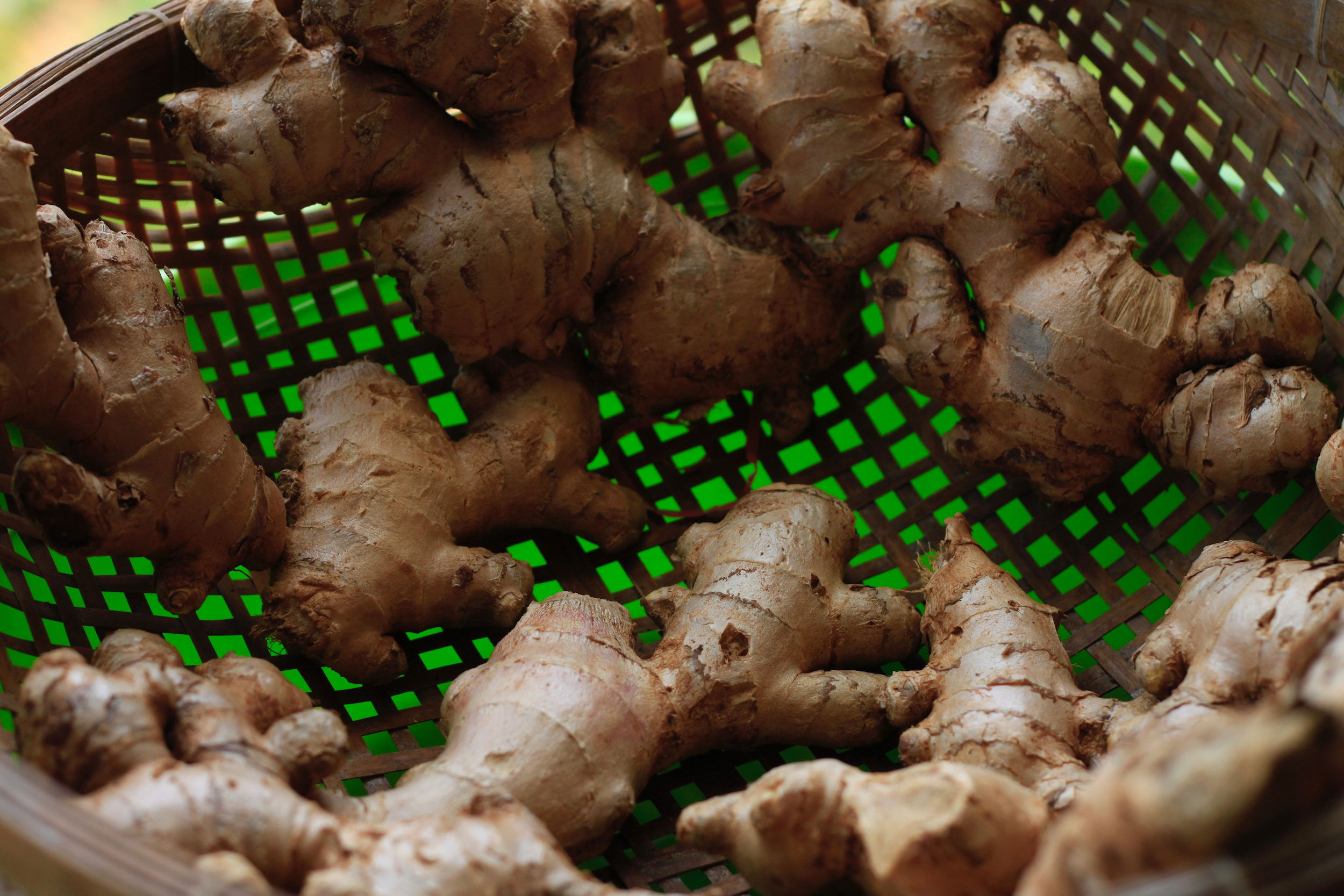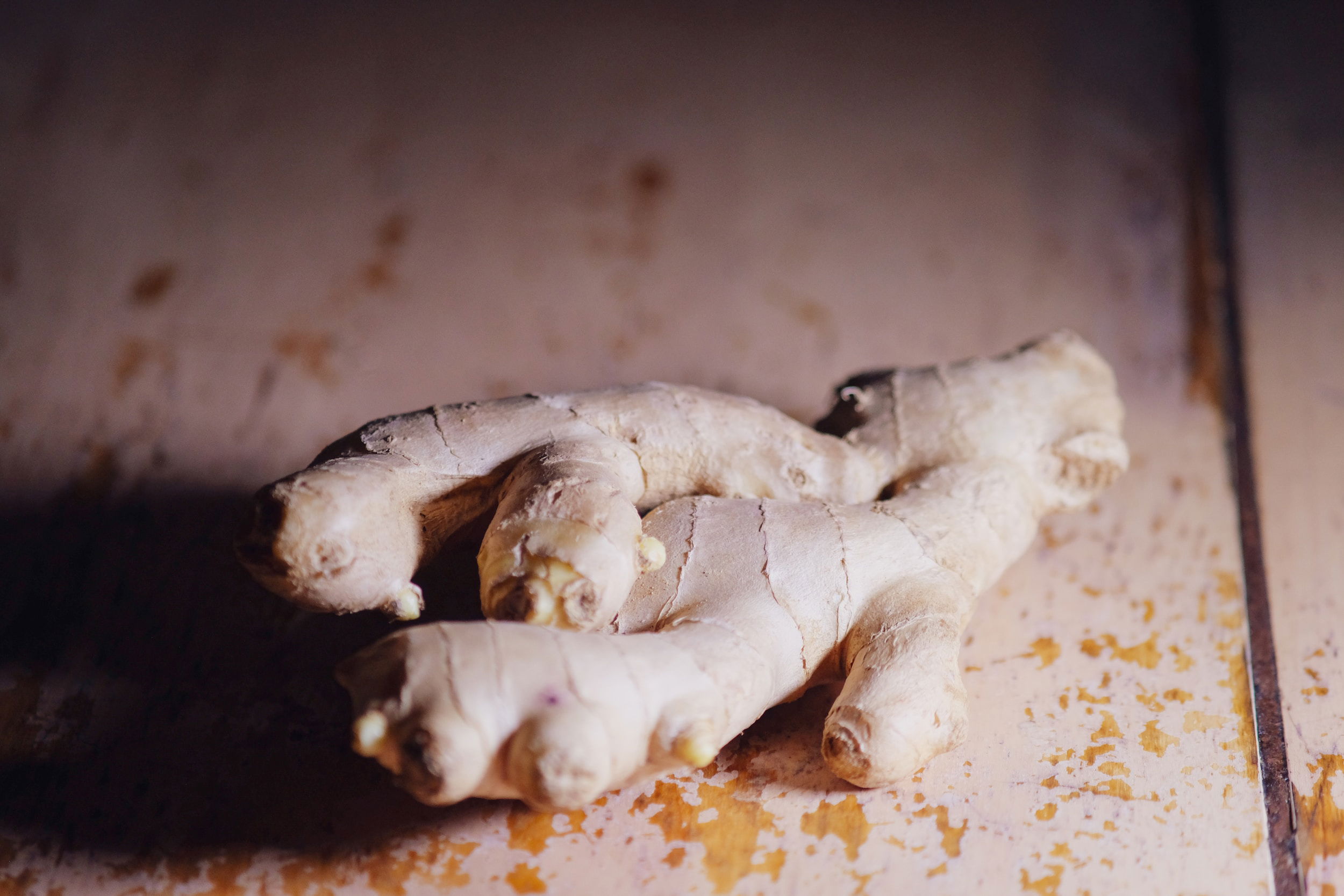Middle Eastern Ginger Importing Countries
Thailand has long been a major producer of ginger, and in recent years, the country's ginger industry has seen a surge in demand from the Middle East. With a growing consumer base and an increasing interest in health and wellness, the Middle East has become a key market for Thai ginger exporters.
In this article, we will take a closer look at the factors driving this demand, the key players in the Thai ginger export industry, and the challenges and opportunities facing exporters looking to tap into this market. We will also explore the future outlook for Thai ginger exports to the Middle East and what this means for the wider ginger industry in Thailand.

Introduction: Thailand's Ginger Industry
Ginger is one of Thailand's top agricultural exports, and the country is one of the world's largest producers of the spice. With its distinct flavor and numerous health benefits, ginger has become a popular ingredient in cuisines around the world. In recent years, the Middle East has emerged as a particularly lucrative market for Thai ginger growers and exporters.
Background on Thailand's Ginger Production
Thailand's tropical climate and fertile soil make it an ideal environment for ginger cultivation. The country produces over 100,000 tonnes of ginger annually, with most of the harvest taking place between November and March. Ginger is grown in several regions of Thailand, including Chiang Mai, Lamphun, and Chanthaburi.
Overview of Thai Ginger Export Industry
Thailand exports ginger to more than 60 countries around the world, with Japan, the United States, and Canada among the biggest importers. In recent years, demand for Thai ginger has been particularly strong in the Middle East, where it is used in a variety of dishes and beverages.

Overview of Middle East Market for Ginger
Analysis of Middle Eastern Ginger Consumption Trends
Ginger has long been used in Middle Eastern cuisine for its aromatic properties and digestive benefits. In recent years, however, its popularity has grown as consumers have become more health-conscious and interested in natural remedies. Ginger is now a common ingredient in beverages like tea and juice, as well as in savoury dishes.
Overview of Key Middle Eastern Ginger Importing Countries
Saudi Arabia, UAE, and Kuwait are among the largest importers of ginger in the Middle East. These countries rely heavily on imports to meet the demand for spice, making them key markets for Thai ginger exporters.
Factors Driving Demand for Thai Ginger in the Middle East
Comparison of Thai Ginger to Other Varieties
Thai ginger is known for its unique flavor and aroma, which sets it apart from other varieties of ginger. The spice is also prized for its high oil content, which gives it a longer shelf life and makes it easier to transport.

The Role of Health and Wellness Trends in Driving Demand
Middle Eastern consumers are increasingly looking for natural remedies to support good health, and ginger fits the bill. It is said to have anti-inflammatory properties, aid digestion, and boost the immune system. As a result, the demand for ginger-based products is on the rise.
Key Players in the Thai Ginger Export Industry
Profiles of Major Thai Ginger Exporters
Some of the biggest players in the Thai ginger export industry include Charoen Pokphand Foods, Betagro, and Thai Union Group. These companies have developed sophisticated supply chains and distribution networks to meet the needs of customers around the world.
Analysis of Key Export Markets for Thai Ginger
While Thai ginger is exported to numerous countries, the Middle East is one of the most important markets for growers and exporters. With its growing population and increasing demand for natural products, the region is likely to remain a key market for Thai ginger for years to come.

Challenges Faced by Thai Ginger Exporters in the Middle East
Exporting fresh ginger from Thailand to the Middle East comes with a unique set of challenges. While the region has a high demand for Thai ginger, exporters must first overcome regulatory and trade barriers. Exporters must comply with the complex regulations set by the importing countries, which can vary from one country to another. This can be a challenge for small-scale operators who may not have the resources to comply with all the requirements.
Regulatory Challenges and Trade Barriers
The Middle East is an important market for Thai ginger exporters, but it is also a highly regulated one. Exporters must comply with stringent regulations, including import permits, phytosanitary certificates, and food safety standards. Furthermore, some countries in the region have imposed trade barriers, such as high tariffs and import quotas, which can further limit the export opportunities for Thai ginger.
Logistical Challenges in Shipping Ginger to the Middle East
Logistical challenges in shipping ginger to the Middle East also pose a significant hurdle for Thai exporters. The long-distance between Thailand and the Middle East can result in longer shipping times, which can affect the quality and freshness of the ginger. Given the perishable nature of fresh ginger, maintaining quality during transit is crucial. In addition, transport costs can add up quickly, which can make exports less competitive.
Future Outlook for Thai Ginger Exports to the Middle East
Despite the challenges, the future outlook for Thai ginger exports to the Middle East is positive. The region's growing demand for Thai ginger presents a significant growth opportunity for exporters. In addition, there are emerging trends in the Middle East ginger market that Thai exporters can capitalize on.
Growth Opportunities and Potential for Thai Ginger in the Middle East
The Middle East presents significant growth opportunities for Thai ginger exporters due to the region's large population and increasing demand for high-quality fresh produce. Moreover, Thai ginger is known for its distinctive taste, health benefits, and versatility in cooking, making it a popular ingredient in the region's cuisine.
Emerging Trends and Evolving Consumer Preferences in the Middle East Ginger Market
The Middle East ginger market is evolving, with consumers demanding more organic, sustainably sourced, and ethically produced products. Thai exporters who can meet these demands have a significant opportunity to gain a competitive advantage. Moreover, there is a growing interest in value-added ginger products, such as ginger powders, teas, and supplements, which Thai exporters can also explore.

Conclusion and Implications for Thailand's Ginger Industry
Thai ginger exporters face multiple challenges when exporting to the Middle East, but the growing demand for Thai ginger in the region presents a significant growth opportunity. To succeed in this market, Thai exporters must overcome regulatory and logistical challenges and respond to emerging trends and evolving consumer preferences.
Summary of Key Findings and Conclusions
In summary, the Middle East presents a potentially lucrative market for Thai ginger exporters, but success in this market will require significant investments in compliance, logistics, and market research. Meeting the diverse and evolving expectations of Middle Eastern consumers is crucial for long-term success in this market.
Implications for Future Development of Thailand's Ginger Industry
To fully leverage the potential of the Middle East ginger market, Thailand's ginger industry must invest in developing sustainable and ethical production practices, adopting new technologies for quality management, and exploring new value-added product categories.
By doing so, Thai ginger exporters can expand their presence in the Middle East and establish themselves as reliable and trusted suppliers of high-quality products. In conclusion, the demand for Thai ginger in the Middle East is showing no signs of slowing down.
As health and wellness trends continue to drive consumer preferences, and as the Middle East's population continues to grow, the potential for Thai ginger exports is significant. With a strong export infrastructure and a reputation for producing high-quality ginger, Thailand is well-positioned to continue supplying the Middle Eastern market with this valuable commodity.

FAQ
What makes Thai ginger stand out from other ginger varieties?
Thai ginger is known for its distinctive flavor and aroma, which are the result of the country's unique soil and climate conditions. Thai ginger is also typically fresher and less fibrous than other varieties, making it ideal for use in cooking and other applications.
What are the main challenges facing Thai ginger exporters in the Middle East?
One of the biggest challenges is navigating the complex regulatory environment in the Middle East, which can vary widely between different countries. In addition, logistics and transportation can be a challenge, as ginger is a perishable product that must be transported quickly and carefully to maintain its freshness.
What is the outlook for the Thai ginger industry in the coming years?
The outlook for the Thai ginger industry is largely positive, with demand for ginger expected to continue growing in both the Middle East and other key markets. However, there are also challenges to be addressed, such as competition from other ginger-producing countries and the need to continually meet evolving consumer preferences.
How important is the Middle East market for Thai ginger exporters?
The Middle East is a key market for Thai ginger exporters, accounting for a significant portion of the country's ginger exports. As such, it is an important region for the growth and development of Thailand's ginger industry


